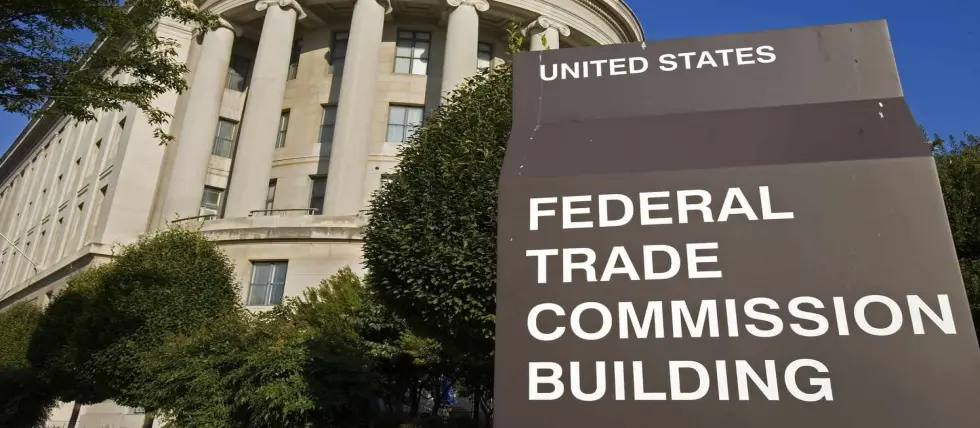FTC Probe of MGM Hack Could Be Blocked by Federal Legislation
Federal lawmakers in the US are making a move that will certainly raise eyebrows across the political and business spectrums. They have included a provision in the latest US House legislation that could potentially stymie the Federal Trade Commission's (FTC) ongoing investigation into the September cyberattack on MGM Resorts International.

The sign outside the offices of the Federal Trade Commission in Washington, DC. (Source: Investopedia)
The cyberattack, which significantly disrupted MGM's operations, targeted critical systems such as telephones, emails, and credit card processing. It's already been linked to Scattered Spider, an international hacking group with suspected domestic connections that has seen three of its members arrested in recent months.
Related: MGM Challenges FTC Probe into 2023 CyberattackThe provision, embedded within the Republican spending bill, seeks to block the FTC's civil investigative demand issued on January 25, which required MGM to disclose details pertaining to its data security measures. This legislative maneuver coincides with a substantial 27% cut to the FTC's budget, a move that critics argue could weaken the commission's ability to enforce consumer protection and antitrust laws effectively.
Notably, the cyberattack in question had widespread repercussions, affecting MGM's reservation systems, hotel check-ins, and even the functionality of slot machines over a span of nine days, beginning September 10. The timing of the attack coincided with the stay of FTC Chair Lina Khan and an aide at an MGM property in Las Vegas, where they were attending a conference. This incident has amplified the scrutiny of the proposed budget cuts and the provision that could halt the FTC's investigative efforts.
The bill's proponents justify the cuts as necessary to curb what they perceive as regulatory overreach. They argue that the bill will prevent the misuse of funds for regulatory actions that they believe could infringe upon the freedoms of American consumers and businesses. This includes preventing the FCC from regulating broadband rates, the FTC from intervening in the car purchase process for Americans, and the SEC from extensive surveillance of stock market investments.
More Business News
Tying the FTC's Hands
Despite being approved by the House Appropriations Committee in June, the future of the spending bill remains uncertain. It was slated for a vote within the week, but the Republican leadership has delayed it.
This postponement comes at a critical juncture, as appropriations legislation is imperative for the approval of the federal budget by the October 1 deadline. The delay follows the rejection of a Democratic amendment that would have granted the FTC chair the authority to take unilateral actions beyond the commission's statutory limits.
Cybersecurity incidents have become a significant concern for companies worldwide, with several high-profile attacks making headlines in recent years. One notable incident was the SolarWinds hack, which involved a supply chain attack affecting thousands of companies and government agencies.
Another major event was the WannaCry ransomware attack, which disrupted operations in over 150 countries. The Heartbleed bug exposed millions of internet users' personal information by exploiting a vulnerability in the OpenSSL cryptographic software library. However, if the FTC's budget is reduced, its effectiveness in helping to limit such attacks will be hindered.
RELATED TOPICS: Business
Most Read
Must Read
 Interviews
Interviews







Review this New Post
Leave a Comment
User Comments
Comments for FTC Probe of MGM Hack Could Be Blocked by Federal Legislation